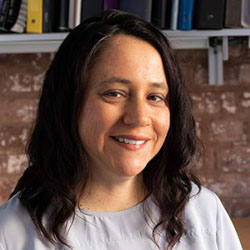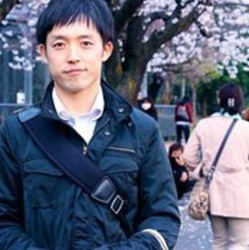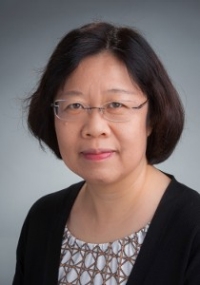Main Content

The 11th International Symposium on the Acquisition of Second Language Speech
University of Toronto, Canada
April 23rd – 25th, 2025
Doctoral workshop April 22nd, 2025
The University of Toronto is pleased to host New Sounds 2025, the 11th International Symposium on the Acquisition of Second Language Speech, fully in person, on its downtown campus in Toronto, Canada. New Sounds brings together researchers, teachers, and learners interested in second/third language phonetics and phonology. The conference will be preceded by a doctoral workshop on April 22.
Contact:
newsounds.2025@utoronto.ca
Call for Papers and Information for Authors
Topics of interest include, but are not limited to,
| Theories and models of L2 speech learning |
| Speech perception and production |
| Phonetics and phonology in SLA |
| Sociolinguistic, psycholinguistic, and neurolinguistic aspects of L2 speech learning |
| Multilingualism and the acquisition of additional languages |
| The effects of and best practices in pronunciation instruction & training |
| The use of technology for L2 speech research, instruction & training |
Doctoral Workshop Presentations: The Doctoral Workshop will take place on the Tuesday (April 22, 2025) preceding the main conference. This is an opportunity for PhD students to make a 15-minute presentation on their dissertation project (research problem, methodology) followed by 15 minutes of feedback from a discussant. Students accepted to the Doctoral Workshop should submit their slides to the discussant by April 8, 2025 (details to follow).
Papers: 20-minute oral presentation followed by a 10-minute question period.
Posters: A poster session will take place on two of the three days of the conference. Posters will be displayed and presented by their authors for the length of their session.
Instructions for Accepted Authors
Doctoral workshop presentation: Students accepted to the Doctoral Workshop should submit their slides to the discussant by April 8, 2025 (details to follow).
Accepted oral presentations and posters (including papers within a thematic session): Please submit the final formatted version of your abstract by January 15, 2025. To submit it, log in to CMT (https://cmt3.research.microsoft.com/NewSounds2025/) as an Author. Select the option “Create Camera Ready Submission” under the “Actions” column. Using the provided template, upload your final abstract and click Submit. Please note that the purpose of this submission is solely to ensure that the abstract meets formatting requirements; there should be no change to its content compared to the version originally submitted.
Presentations accepted to thematic sessions: Authors will be contacted by the thematic session organizers before the conference with information about participation.
Poster information: Posters should be maximally 4ft wide by 2.5 ft tall (@1.2m × 0.8m) and printed with landscape orientation. Presenters will be provided with Velcro tape that can be easily attached to the back of their poster and secured to the fabric poster boards. Tips for preparing posters can be found here.
Keynote Speakers

Lisa Davidson is the Silver Professor of Linguistics in the Department of Linguistics at New York University (USA). She is also the Director of the Phonetics & Experimental Phonology Lab and Co-General Editor of the Laboratory Phonology journal. Her research interests focus on laboratory phonology, speech production & perception, and language acquisition.

Kazuya Saito is Professor of Education at the Institute of Education, Culture, Communication & Media at University College London (UK). His research interests cover a wide range of topics in Second Language Acquisition (SLA), Education, and Psycholinguistics. Specifically, he is interested in the assessment, development, and teaching of adult second language (L2) speech.

Yue Wang is Professor in the Department of Linguistics at Simon Fraser University (Canada) and Director of Language and Brain Lab. Her current research focuses on the roles of various experiential factors in speech perception, production, and learning, with the goal of exploring how multisensory and cognitive systems cooperate functionally in speech processing. Such topics speak to the long-deliberated theoretical argument in terms of the contribution of language-specific versus general sensory-motor mechanisms in speech processing. This theme provides the theoretical framework for her recent and current projects in two lines of research, mainly supported by grants from the Social Sciences and Humanities Research Council of Canada (SSHRC) and the Natural Sciences and Engineering Research Council of Canada (NSERC).
Thematic sessions
Thematic sessions, including oral presentations and discussion, will be hosted on two of the three days of the conference.
The following four thematic sessions have been tentatively accepted to the conference, and will be included with the acceptance of a sufficient number of abstracts. Oral presentations for the thematic sessions should be submitted as abstracts on the CMT platform (see Call for Papers above).
- New Sounds and New Words: Connecting phonetic training and lexical development.
Organizers: Miquel Llompart, Susana Correia, Patrick Rebuschat
This thematic session aims to bridge the gap between two research areas that are central to the study of second language (L2) speech yet remain largely disconnected: phonetic training and lexical development. Most training methods are geared towards improving the identification and production of individual sounds, and are generally successful at that. Nevertheless, there is only limited evidence that training gains transfer to spoken word recognition or word learning abilities when these depend on the identification of the trained sounds. In a parallel manner, while there is a growing literature exploring how individual differences shape the evolution of L2 pre-lexical perception and production, less is known about the predictors of high attainment at the lexical level. This session intends to raise awareness of these asymmetries, stimulate scientific exchange across domains of expertise and, ideally, lay the foundations of future collaborative research efforts. - The Phonology/Phonetics interface in Ln acquisition: insights from representational hierarchies.
Organizer: John Archibald
An understanding of the phonology/phonetics interface is critical to advancing explanations of Ln knowledge, production, perception, and development. This session will bring together junior and senior scholars working on a range of languages to explore the nature and content of phonological representations (particularly contrastive hierarchies, and the dimensions & gestures model) in diverse multilingual populations (L2, L3 and heritage), as well as how the phonetic system implements these phonological elements (e.g., the role of such constructs as markedness and enhancement), and how phonetic data (a) need to be described to understand phonological output, and (b) serve as the input to the learner in establishing new representations. - Exploring Prosody in the multilingual context.
Organizers: Jolanta Sypiańska, Magdalena Wrembel
Although research into third language acquisition of speech has been developing dynamically in recent years, L3 prosody has received limited attention to date. The few extant studies on prosodic elements in the multilingual acquisition have pertained to the production of intonational patterns (Grünke & Gabriel, 2022; Steien & Lyche, 2016; Zhu & Mok, 2016), speech rhythm (Domene Moreno & Kabak, 2023; Gabriel et al., 2022; Gut, 2010), pitch accent (Wu et al., 2024) and word stress (Ghazali & Bouchhioua, 2003). However, there is dearth of research on the perception of prosody by multilingual/L3 learners (but see Archibald, et al., 2024; Sypiańska et al. to be submitted). We would like to fill this research void and consolidate research in this subfield by offering a thematic session on selected aspects of multilingual prosody in both production and perception of speech. - Speech Technologies for L2 Pronunciation Pedagogy and Assessment: Research, Applications, and Future Directions.
Organizers: Walcir Cardoso & Paul John
This session presents the latest research on three Artificial Intelligence-powered speech technologies that can enhance L2 pronunciation pedagogy: Automatic Speech Recognition (ASR), Text-to-Speech Synthesizers (TTS), and Intelligent Personal Assistants (IPAs). With increasingly natural-sounding TTS systems (Bione & Cardoso, 2020) and highly accurate speech recognition (McCrocklin & Edalatishams, 2020), these technologies enable lifelike interactions (e.g., Moussalli & Cardoso, 2019), providing feedback and interactive pronunciation practice, as well as exposure to variable phonetic input for high-variability phonetic training. In addition, these tools are pedagogically interesting because they can extend the reach of the classroom, enhance learner engagement and outcomes, and offer reliable pronunciation assessments. Our session showcases recent research on ASR, TTS and IPAs as tools for pronunciation instruction and assessment, discusses pedagogical implications and applications, and explores future research avenues in this rapidly evolving field.
Important Dates
| Doctoral workshop participants submit slides | April 8, 2025 |
| Doctoral workshop | April 22, 2025 |
| Conference dates | April 23-25, 2025 |
| Visit to Niagara Falls | April 26, 2025 |
Registration and Practical Information
The registration platform is now active at the following link:
Registration prices are as follows. All prices are in CAD.
| Before February 20th | After February 20th | ||
| Faculty | $350 | $400 | |
| Students | $175 | $250 | |
| Canadian graduate student presenters | Free (courtesy of SSHRC) | Free (courtesy of SSHRC) | |
| Low/lower-middle income economies | $200 | $250 |
Low/lower-middle income economies are defined following the World Bank: see lists here
Dinner and Social Programs
- Conference dinner at the CN Tower (includes a visit to the tower): $160
- Visit to Niagara Falls (April 26th): $170
Visit to Niagara Falls includes a visit to the Falls (boat tour), lunch, and a wine tasting in Niagara on the Lake.
Departure time (from University of Toronto St. George campus, location TBA): 9 AM
Return (to University of Toronto St. George campus): Around 5 PM
Registration deadline for the social events will be March 1st. We have limited space for the conference dinner (250 people). You can bring one guest.
Venue
University of Toronto
Victoria College
73 Queen’s Park Crescent
Toronto, ON
M5S 1K7
Victoria College is located in downtown Toronto, steps from the Museum subway station (Line 1) and the Bay subway station (Line 2).
Accommodation
Hotel prices around the university are on average $300 per night. Students’ residences located close to the University rent rooms over the summer (minimum of one week stay):
Unfortunately, we have not been able to secure crash space or hotel prices at a competitive rate. If you need a list of hotels around campus, you can find it here:
https://www.cs.toronto.edu/~ccc/accommodation.html
or here: https://offcampushousing.utoronto.ca/resources/article/908-toronto-area-hotel-hostel-information
Our recommendation continues to be to find a place near a subway stop. Please, feel free to contact the organizing committee if you are unsure about how close/accessible a hotel is.